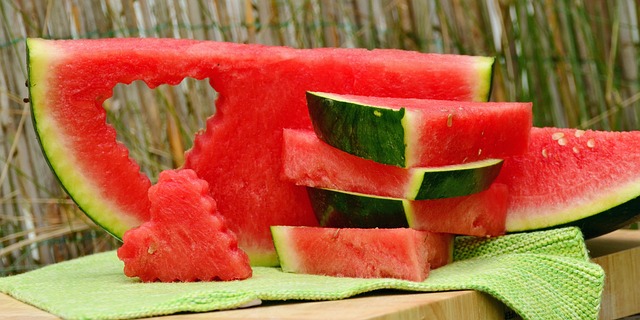The symptoms of individuals with acid reflux can be aggravated by specific foods like fizzy drinks and spices. However, those who consume a diet rich in healthy fats, fruits, vegetables, and whole grains may experience an improvement in their symptoms.
In order to manage acid reflux, it is advisable to consume vegetables, lean meats, and healthy fats. While you can incorporate certain fruits and egg whites into your diet, it is important to steer clear of certain foods that could exacerbate your symptoms.
The backflow of acid from the stomach into the esophagus is known as acid reflux, which can lead to complications or uncomfortable symptoms like heartburn. The weakening or damaging of the lower esophageal sphincter (LES) is one of the causes of acid reflux. Ordinarily, the LES would seal shut to prevent food from the stomach moving into the esophagus.
The foods you eat affect the amount of acid your stomach produces. Eating the right kinds of food is key to controlling acid reflux or gastroesophageal reflux disease (GERD), a severe, chronic form of acid reflux.
An individual experiencing GERD regularly regurgitates stomach contents back up their food pipe, causing uncomfortable symptoms such as heartburn and upper abdominal pain. The condition is typically prolonged and severity is often associated with one’s eating habits and way of life.
Approximately 20% of adults in western society suffer from GERD.
This article examines the dietary tips that could alleviate the symptoms of GERD, such as steering clear of trigger foods. Additionally, it offers insights on the types of foods people with GERD should consider eliminating or incorporating into their diet.
As a person swallows, the food descends through the esophagus towards the stomach. At the base of the esophagus, there exists a circular muscle tissue named the lower esophageal sphincter which opens to let food enter the stomach. It then shuts firmly to avoid any backward flow of food.
GERD, or gastroesophageal reflux disease, occurs when the stomach contents flow back into the food pipe due to a malfunctioning esophageal sphincter. Although acid reflux or heartburn are common symptoms of GERD, they are not independent ailments.
If left untreated, GERD can result in serious health issues like Barrett’s esophagus, which is characterized by irregularities in the lining of the esophagus and, in certain instances, can develop into cancer.
The primary symptom of GERD is heartburn, a painful sensation that ranges from a burning feeling in the chest to a sensation of food sticking in the throat. It is also relatively common to experience nausea after eating.
GERD can sometimes present with symptoms that are not frequently observed, such as:
- hiccups
- burping
- wheezing or weak coughing
- a sore throat
- changes to the voice, including hoarseness
- food regurgitation
Symptoms may deteriorate if one lies down immediately after eating. Some individuals experience worsened symptoms during nighttime. To alleviate such symptoms, these individuals can elevate their head while sleeping and refrain from eating for at least 2 hours prior to bedtime.
Acid reflux and GERD commonly manifest through heartburn symptoms, which involves feeling a burning sensation in your chest or stomach after consuming certain foods or a heavy meal. Additionally, these conditions may lead to regurgitation or vomiting due to acid leaking into your esophagus.
Additional indications encompass:
- dry cough
- sore throat
- bloating
- burping or hiccups
- difficulty swallowing
- lump in the throat
GERD symptoms can be triggered by specific foods in individuals. It is impossible to prevent all symptoms with a single diet, as food triggers vary from person to person. Keeping a food diary and monitoring the following can help identify personal triggers.
- what foods you eat
- what time of day you eat
- what symptoms you experience
Keep the diary for at least a week. It’s helpful to track your foods for a longer period if your diet varies. You can use the diary to identify specific foods and drinks that affect your GERD. The diet and nutrition advice here is a starting point to plan your meals. Use this guide in conjunction with your food journal and your doctor’s advice. The goal is to minimize and control your symptoms.
GERD symptoms can be effectively managed with various over-the-counter (OTC) medications. Antacids like Gaviscon can neutralize stomach acid, while H2-receptor blockers and OTC proton-pump inhibitors (PPIs) can reduce the production of stomach acid for up to 12 hours, providing similar relief.
Prescription drugs could comprise potent antacids or acid-blocking medicines that primarily lower stomach acid levels. While these substances tend to be powerful in their actions, they do not increase vitamin B12 absorption from food during digestion. Taking antacids, H2-receptor inhibitors, or PPIs regularly may result in vitamin B12 deficiency.
The drug baclofen has the potential to manage symptoms by decreasing the relaxation of the lower esophageal sphincter, but it may also result in negative consequences, such as tiredness and disorientation.
which can boost your health and well-being. Some foods that may improve your overall health and wellness.
While there are no foods that can cure GERD, certain ones may help alleviate symptoms.
Previously, there was limited comprehension of GERD amongst researchers, and insufficient scientific proof that modifying one’s diet could alleviate symptoms. However, a 2021 investigation implies that specific foods, particularly fruits and vegetables, may lessen the possibility of acquiring GERD. Additional evidence is still necessary to confirm these findings.
Acid reflux symptoms may occur when stomach acid comes into contact with the esophagus, leading to discomfort and pain. You can alleviate acid reflux symptoms by adding certain foods to your diet in case you produce excess acid.
Your condition cannot be cured by any of these foods, and it’s up to you to decide based on your personal experiences whether to try them for relieving your symptoms. In the same vein, a study conducted in 2016 suggested that adopting a Mediterranean diet that includes an abundance of fruits, vegetables, whole grains, and unsaturated fats may alleviate the symptoms of GERD.
Provided below are some food items known to alleviate the symptoms of the condition.
Vegetables
Adequate sources of fiber, a beneficial carbohydrate, can be found in vegetables, which are generally low in fat and sugar. Some recommended choices are:
- asparagus
- broccoli
- Brussel sprouts
- cauliflower
- cucumbers
- green beans
- kale
- potatoes
- spinach
Fruits
Noncitrus fruits are less likely to cause GERD symptoms and can provide important nutrients such as vitamin C, fiber, magnesium, and potassium. There are various fruit options available.
- apples
- avocados
- bananas
- berries
- melons
- peaches
- pears
Proteins
Incorporate sources of lean protein that are low in saturated fat, for example:
- almonds
- beans
- skinless chicken
- fish
- lentils
- seafood
- skinless turkey
Although egg whites are a viable alternative, egg yolks contain high levels of fat that may cause GERD symptoms. Furthermore, when preparing proteins, opt for cooking methods such as grilling, broiling, baking, or poaching instead of frying.
Fats
To manage GERD, it is typically recommended to limit saturated fats from animal products and trans fats from packaged foods. Instead, opt for foods that contain beneficial fats in moderate amounts. Such options may include:
- avocado oil
- olive oil
- nut butter
- fatty fish
- nuts and seeds
Whole grains
Fiber can be obtained from whole grains, which have been proven to decrease the likelihood of experiencing symptoms related to heartburn. Examples of whole grain food items are:
- oatmeal
- brown rice
- whole grain bread
Several foods are thought to trigger reflux symptoms, and while the medical community may disagree on which ones are the most problematic, certain ones are believed to be the cause of discomfort for a significant number of individuals. If you wish to alleviate your symptoms, one approach might be to cut out the following foods from your diet:
High-fat foods
Consuming foods that are fried and high in fat can result in the relaxation of the LES, leading to an increased amount of stomach acid moving back into the esophagus. In addition, consumption of such foods can also result in the delay of stomach emptying. As such, there is an increased likelihood of experiencing reflux symptoms if high-fat foods are consumed, making it beneficial to decrease overall daily fat consumption.
These foods contain a significant amount of fat. It is recommended to either limit the intake or completely avoid them.
- French fries and onion rings
- full-fat dairy products, such as butter, whole milk, regular cheese, and sour cream
- fatty or fried cuts of beef, pork, or lamb
- bacon fat, ham fat, and lard
- desserts or snacks, such as ice cream and potato chips
- cream sauces, gravies, and creamy salad dressings
- oily and greasy foods
High acid foods
Consuming fruits and vegetables is crucial for a nutritious diet. Nevertheless, certain fruits, particularly highly acidic ones, can exacerbate or trigger GERD symptoms. If you frequently experience acid reflux, it is advisable to minimize or eliminate your consumption of the foods listed below.
- oranges
- grapefruit
- lemons
- limes
- pineapple
- tomatoes
- tomato sauce or foods that use it, such as pizza and chili
- salsa
Chocolate
Methylxanthine, an ingredient found in chocolate, has been proven to cause the relaxation of the smooth muscle in the LES and facilitate an increase in reflux.
Garlic, onions, and spicy foods
Heartburn symptoms are triggered in a lot of people by piquant and acidic foods, such as garlic and onions.
Not all individuals will experience reflux from consuming these foods. However, if you frequently consume onions or garlic, it is recommended to keep a meticulous record of your meals in a diary. Certain spicy foods and some of these specific foods may provoke your symptoms more than others.
Mint
Mint-flavored items such as breath mints and chewing gum can lead to the occurrence of acid reflux symptoms as well.
Other options
Although the aforementioned lists comprise typical triggers, there could be other foods that you are intolerant to. To gauge if symptoms ameliorate, gradually cut out dairy products, flour-based substances such as bread and crackers, and whey protein.
Aside from diet and nutrition, you can handle reflux symptoms by adopting alterations in your lifestyle. Give these recommendations a try:
- Take antacids and other medications that reduce acid production. (Overuse can cause negative side effects.)
- Maintain a healthy weight.
- Chew gum that isn’t flavored with peppermint or spearmint.
- Avoid alcohol.
- Stop smoking.
- Don’t overeat, and eat slowly.
- Remain upright for at least 2 hours after eating.
- Avoid tight clothing.
- Don’t eat for 3 to 4 hours before going to bed.
- Raise the head of your bed 4 to 6 inches to reduce reflux symptoms while sleeping.
Holistic dietary strategies for GERD
When developing a thorough treatment strategy for GERD, it is important to take into account factors beyond simple dietary alterations. Individuals dealing with digestive problems may find it advantageous to restore equilibrium to their gut’s bacterial flora. The consumption of prebiotic and fermented foods may aid in accomplishing this goal.
The bacteria present in fermented foods are commonly referred to as “probiotics” due to their potential to promote a healthy gut balance and alleviate digestive problems. On the other hand, prebiotic-rich foods stimulate growth of beneficial bacteria selectively.
There are certain foods which have probiotics present in them naturally, such as:
- yogurt
- kefir
- raw sauerkraut
- raw kimchi
- raw fermented pickles and vegetables
- kombucha, a fermented tea drink
Foods that are rich in prebiotics are:
- Jerusalem artichokes
- chicory root fiber or inulin
- greener bananas
- onions
- garlic
- leeks
- apples
Individuals who have GERD could potentially experience a reduction in symptoms by consuming probiotic and prebiotic foods. Probiotics are beneficial in combating the bacteria Helicobacter pylori, which certain researchers theorize may be connected to GERD. Nevertheless, additional studies are required to verify this hypothesis.
Licorice, ginger, and slippery elm bark are believed to be natural remedies that can help alleviate the symptoms of GERD. They are thought to have the potential to reduce symptoms, relieve nausea, and enhance gastric emptying. Nevertheless, the efficacy of these treatments lacks substantial research evidence at present.
The mucilage content in slippery elm is believed to have a throat and stomach coating and calming effect. Additionally, it may stimulate mucus production in the stomach, providing a protective barrier against acid damage.
A 2018 study indicates that an oral melatonin supplement could potentially alleviate symptoms of GERD. Nevertheless, the researchers caution that this should only be considered as a part of a broader treatment plan and that further investigation is required to validate these findings.
GERD symptoms can be minimized by maintaining moderate weight, elevating the head during sleep, and making other lifestyle changes such as:
- quitting smoking
- eating smaller meals
- not lying down for at least 2-3 hours after a meal
While GERD is commonly perceived as a persistent condition, it is not necessarily a permanent one. By implementing alterations to one’s diet, lifestyle, and utilizing integrative therapies in addition to medications, GERD can be managed. If these methods prove to be unsuccessful, surgery may be a viable option to reinforce the lower esophageal sphincter.
A person’s quality of life can be safeguarded by using the correct treatment to prevent GERD. Nevertheless, it is crucial to consult a doctor before altering any treatment scheme. The uncomfortable burning symptoms are caused by GERD, which regularly results in the contents of the stomach moving back up the throat.
While there is no particular diet that can entirely prevent the condition, certain foods can be consumed or avoided to alleviate symptoms for some people. GERD patients can often regulate their symptoms via lifestyle modifications, dietary changes and over-the-counter medications.



